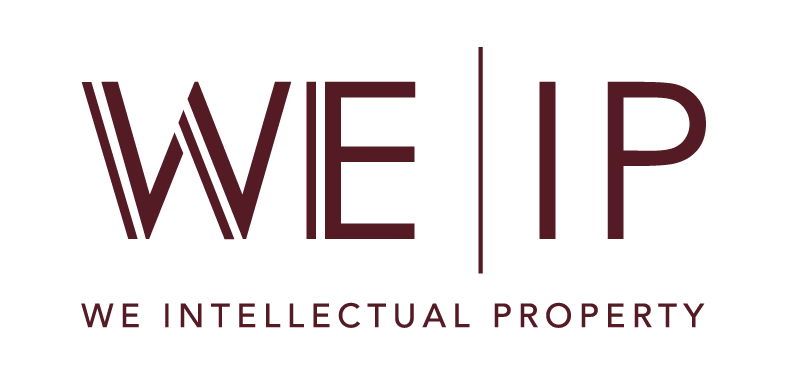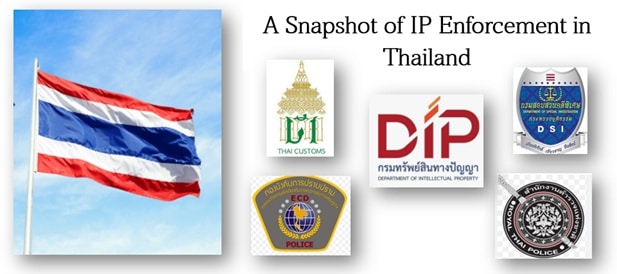A Snapshot of IP Enforcement in Thailand
In light of the emerging challenges in the intellectual property landscape, Thailand, like its neighbours in the region, continues to refine its intellectual property enforcement to address persistent issues. This article provides a concise overview of the current enforcement landscape in Thailand, focusing on the legal framework, enforcement mechanisms, available remedies, emerging challenges, and future trends.
1. Legal Framework: Primary Laws and Regulations governing IP Enforcement in Thailand
Thailand enforces intellectual property (IP) rights through key IP legislations, namely the Trademark Act, Copyright Act, Patent Act, the Trade Secrets Act, the Geographical Indications Protection Act, and the Protection of Layout – Designs of Integrated Circuits Act.
Additional protection is provided under the Penal Code and Civil and Commercial Code, especially for unregistered rights or where the primary IP regulations do not cover.
In addition to the above, the Computer Crime Act and Customs Act have become increasingly important in addressing online and cross-border infringements.
2. Key Enforcement Mechanisms
Civil and criminal liabilities are the primary mechanisms available to rights holders for enforcing their IP rights in Thailand. All cases related to intellectual property fall under the jurisdiction of the Central Intellectual Property and International Trade Court.
By far, the most common action taken by rights holders against infringers, especially in trademark and copyright cases, is criminal prosecution. This allows for faster evidence gathering and enforcement with the assistance of official authorities. Civil lawsuits are also common, particularly for claiming damages to compensate for losses typically not covered by criminal proceedings. Alternative solutions, such as border measures imposed by Customs, are available to address infringement issues as early as when the infringing goods enter the Thai border.
3. Remedies and Penalties
Remedies and penalties for IP infringement cases are primarily enforced through judicial orders.
IP rights holders are typically entitled to seek damages by initiating or pursuing civil cases in court. Under Thai law, the amount of damages awarded is based on the actual loss that rights holders can satisfactorily prove to the court was directly caused by the infringing activities. Notably, punitive damages are not available. In determining an appropriate compensation amount, the court may consider the specific facts and circumstances of the case, as well as the severity of the harm suffered.
In addition to civil remedies, infringers of IP rights may also face criminal penalties, including fines and/or imprisonment. Similar to civil penalties, the severity of these criminal sanctions depends on factors such as the number of offenses committed and the seriousness of the case.
4. Administrative Procedures
As an alternative to court proceedings, the Department of Intellectual Property offers mediation services. This process is free of charge and is typically completed within three months. If the parties involved reach an agreement, a legally binding settlement agreement will be executed, the terms of which will be enforceable on both sides.
5. Emerging Challenges
Despite the available enforcement mechanisms, the growth of e-commerce and online marketplaces remains one of the main challenges Thailand faces in enforcing IPRs against counterfeit goods. Counterfeiters frequently operate behind fake identities, making it difficult to identify and address them, let alone serve cease-and-desist letters. While rights holders can request takedowns from online platforms and seek to block access through authorities under the Computer Crime Act, effective enforcement regarding online piracy remains a persistent issue.
6. Future Trends
Given the lengthy court procedure, many rights holders are shifting toward quicker, alternative enforcement strategies like customs actions and online takedowns.
The private sector is also emerging as a new player in the IP enforcement regime. Encouraged by the direct force of the law, enforcement is no longer solely the responsibility of public authorities. Service providers are now legally required to regulate IP violations on their platforms, and rights holders can request, for example, that online service providers take action against infringing content without involving public authorities.
This article is part of the collaboration project leads by our partner, ADCO Law, for more detail, please click here.
The Authors
 |
 |
 |
| Saowaluck Lamlert (APPLE)
Managing Partner |
Tatchaporn Natprasertkul
Partner |
Kolanya Borisuth
Associate |

